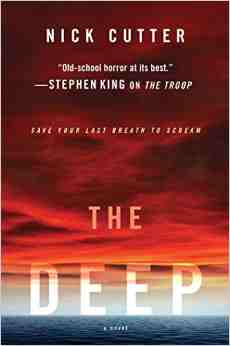If I Fall, I Die by Michael Christie
 Friday, March 6, 2015 at 1:56AM
Friday, March 6, 2015 at 1:56AM 
Published by Hogarth on January 20, 2015
Tragedy is no respecter of wealth, power, or fame. It claims equally "those treasured and those ignored." No shield or spell can protect us. How can we live in a world that is poised to harm "every face at every address"?
The first time Will Cardiel ventures outside his home, he's plunked with a slingshot. At age 11, Will's rude introduction to the outside world is exhilarating. Will had to sneak outside because his mother, Diane, refuses to allow him to set foot in the world. Even inside the home, Will must wear a helmet when he changes a lightbulb (although to calm his mother's fears, Will wears it whenever he gets out of bed). Home schooled and sheltered, Will has little knowledge of life beyond the walls of his home. He knows only that it is a dangerous place.
Diane moved Will to Thunder Bay after a series of family tragedies that are revealed as the novel unfolds. Diane once made films about "modern urban malaise" before succumbing to a malaise of her own. Agoraphobia does not begin to describe her condition. She has frequent panic attacks; she is overprotective of Will; she lives in fear of her own unchecked thoughts. Yet she has convinced herself that she has constructed not a prison, but a fortress to shield Will from the ever-present risk of death. Will has internalized his mother's fear but he cannot restrain his curiosity about life outside. When he does finally venture into the world, he meets his first friend, a garden hose thief named Marcus, but stumbles into a mystery when Marcus disappears.
The plot begins to take shape after Will enters the world and attends school. Isolation has made Will inexperienced and peculiar, thus fodder for the other students. Fortunately, Will isn't the only child who doesn't fit in with the popular crowd. After gaining the reluctant friendship of a Native and learning the thrill of skateboarding, Will begins to unravel the mystery of missing garden hoses as well as his missing friend Marcus.
The plot revolves around a bigger mystery, the clues to which are cleverly woven into the story. I was able to guess the surprise well before it was revealed but I don't count that as a shortcoming in a book that isn't meant to be a mystery novel. The story might be a little too sunshiny and the ending too predictable -- lessons are spelled out explicitly in the apparent belief that readers aren't bright enough to learn them otherwise -- but I did not regard those as serious flaws since they did not impair my enjoyment of the story.
Fear is the dominant theme of If I Fall, I Die. The need to muster the bravery to confront fear is its message. Despite its serious theme, the first half of the novel is peppered with humor. Much of that comes from Will's unique perspective as he sees (and often misunderstands) the outside world for the first time. A character named Titus speaks a confused but lyrical language that is all his own -- almost reason in itself to read the novel. Other reasons I recommend If I Fall, I Die are the story's charm, the appealing characters, and the original plot.
RECOMMENDED



